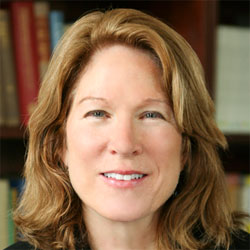Kim Jaffee
Biography
Jaffee's primary area of research is in the areas of health disparities - specifically, Arab health, mental health, maternal and child health, sexual and gender minority health. She has taught courses in social welfare policy, health and mental health, macro social work practice, human diversity, and Lesbian, Gay, Bisexual, Transgender, and Queer (LGBTQ) health and well-being. Prior to receiving her Ph.D. from the State University of New York at Albany, Jaffee practiced social work policy and research for many years in substance abuse and maternal and child health at the Massachusetts Department of Public Health and the New York State Department of Health.
Click here to view Curriculum Vitae
Degrees and Certifications
- Ph.D., State University of New York at Albany
- M.S.W., Ohio State University
Teaching Interests
- Theories for practice and research with communities and organizations
- Social welfare policy
- Human behavior and the social environment
- Lesbian, gay, bisexual, transgender health and well being
Areas of Expertise
SUBSTANTIVE
- Maternal and child health
- Intimate partner violence screening in health care
- Social work and health
- Lesbian, Gay, Bisexual, Transgender (LGBT) health
- Arab health
METHODS
- Quantitative research methods
- Multi-level analyses
Research Project
Cultural Barriers to Breast Cancer Screening Among Arab Women
Breast cancer is the second most common cancer among women worldwide (WHO, 2010) and in the US (CDC, 2013). Breast cancer rates for Arab Americans are difficult to determine because Arab Americans are often categorized as White in racial designations. However, a number of studies have suggested that cancer is diagnosed at later stages for Arab Americans and that prevention efforts should be better understood (Arshad, 2011; Hirko et al., 2013). In this study we conduct a cross country comparison of breast cancer screening barriers among Arab women in Israel and in the US (N=416). In collaboration with Adnan Hammad, PhD, MPH, ACCESS, Miri Cohen, PhD, and Faisal Azaiza, University of Haifa, Israel, we seek to better understand the cultural barriers that influence breast cancer screening among Arab women in metropolitan Detroit and Israel. The specific aims of this preliminary study were to examine the relationship of breast cancer screening barriers 1) environmental; 2) social; 3) body exposure; and 4) religious -- to demographic characteristics such as age, education, employment, religion, religiosity, country of origin, and birthplace. This research will address Arab health disparities in breast cancer screening and direct us to needed strategies that will target specific groups of Arab women who have greater barriers based on these cultural factors.
Transgender Discrimination and Health
In collaboration with Deirdre Shires, MSW, MPH, Doctoral Candidate, WSU SSW, we conducted a series of studies of transgender health using secondary analyses (N=4,700) of the National Transgender Discrimination Survey (NTDS). The NTDS is a cross-sectional online and paper survey distributed to over 800 community organizations and 150 listservs serving the transgender community. Our studies are focused on better understanding the: 1) correlates of discrimination in healthcare for transgender men; 2) the impact of interpersonal and structural discrimination on smoking among transgender individuals; and 3) health system factors such as physician knowledge of transgender health and its association with delaying needed health care due to discrimination.
The Nature of Graduate Heterosexual Social Work Student Attitudes Toward LGBT Individuals
In collaboration with Adrienne Dessel, PhD, University of Michigan and Michael Woodford, PhD, Wilfrid Laurier University, we explore attitudes social work students (N=450) hold toward LGBT people utilizing an LGBT attitudes scale that addresses subtle biases, rather than overt homo/transphobia that have been measured using previous scales. We explore the role of race/ethnicity, religiosity, political ideology, perceived biological causation of LGBT identity, and LGBT exposure on incoming heterosexual graduate social work students attitudes toward LGBT individuals. Furthermore, we seek to understand whether the attitudes students hold toward LGBT people affect the level at which they affirm LGBT non-discrimination policies. Understanding the climate for sexual minorities within Schools of Social Work is critical to the development of LGBT curriculum that is relevant and can address the ethical and ideological barriers that students may face in working with the LGBT population.
